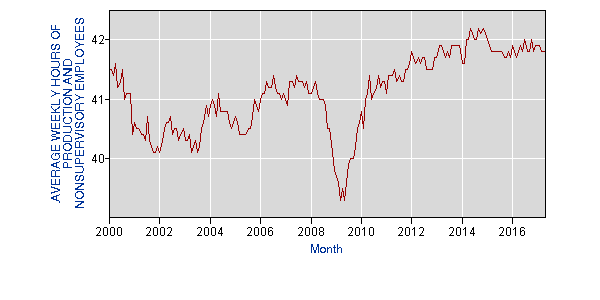June 30, 2017
Just kidding, we know that newspapers don’t make a point of running stories on incompetent bosses. Instead we have Obama administration car czar Steve Rattner telling us in a NYT column that manufacturers are not hiring because they can’t get qualified workers. His evidence is data from the Bureau of Labor Statistics’ Job Openings and Labor Turnover Survey which shows a rise in job openings reported in manufacturing, but little increase in hires. Rattner says that this is because firms can’t find qualified workers.
The problem with this explanation is that employers are not acting like they have a shortage of workers. As Rattner himself points out, the real hourly wage in manufacturing has risen by just 0.8 percent over the last decade. (This is cumulative, not an annual rate.) If firms really were trying to hire people but couldn’t find qualified workers then they would be offering higher wages to attract workers from their competitors. We don’t see this happening.
The other way that employers would respond to a lack of qualified workers is by working their existing workforce more hours. This doesn’t seem to be happening either as the graph below shows.
Average Weekly Hours: Manufacturing Workers

Source: Bureau of Labor Statistics.
While average hours are high, they are no higher than they were in 2013 and down from the peaks hit in 2014, periods when the labor market was considerably weaker by all measures. This picture is not consistent with an industry desperate for qualified workers.
Another item that needs correcting in Rattner’s piece is the claim that college-educated workers are doing well in the current economy. His column includes a chart that shows the wages of college-educated workers (including those with advanced degrees) have increased by 10.7 percent since 1979. (This is actually a growth rate of just 0.3 percent annually — not very impressive.) Since 2000, the median wage of workers with just a college degree has fallen by 1.5 percent. So, even college grads have not shared in the gains from growth in this century.







Comments